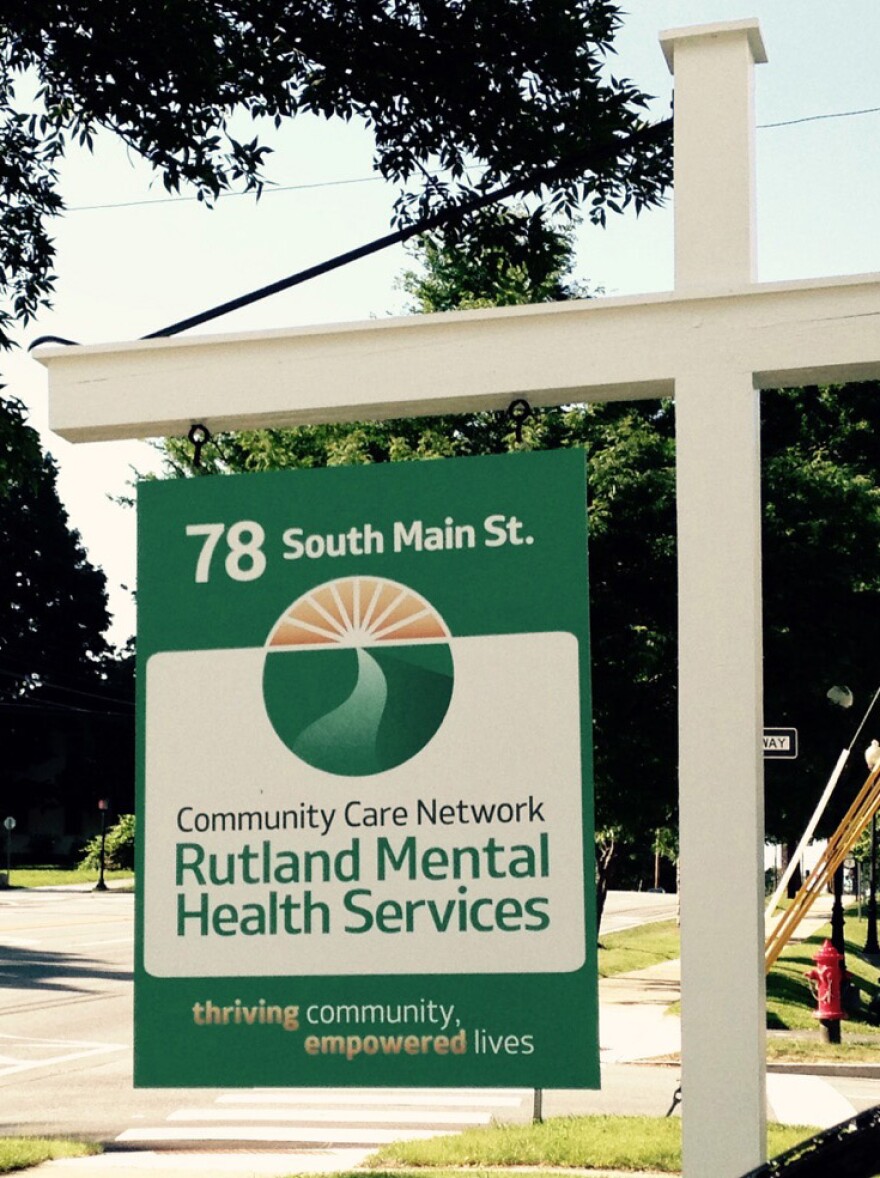Rutland Mental Health has come under intense scrutiny in recent months amid allegations of poor management, long wait times for services and substandard care.
The agency needs to submit plans to fix those problems over the next two weeks. If the state approves them, the Rutland agency has 6 months to implement any changes.
Failure means Rutland Mental Health could lose its funding — $28 million worth — and state accreditation.
It’s a situation that would be devastating to many in Rutland County, like Kate Daly of Danby.
Daly is one of about 3,000 people who receive services from Rutland Mental Health.
Mondays and Fridays, the petite 29-year-old puts on a red Price Chopper shirt, attaches her name tag and goes to work bagging groceries.
“My job at Price Chopper is really important because I need to work my skills, like bagging skills. And I love to see different faces and different people. It’s the best part of the job,” she adds.
But Daly admits she wouldn’t be able to work if it weren’t for Rutland Mental Health and her job coach Melissa Mahoney-Carvey.

Mahoney-Carvey goes to work with Daly and stands nearby, ready to offer assistance if needed. She provides similar on-site supervision for four others.
“The individuals that we work with count on Rutland Mental Health to get to their jobs, to get to their activities and to be part of the community,” she says.
If Rutland Mental Health loses its accreditation, she says Daly and many others would lose vital services. Families would have to step up to provide care, something she says many simply can’t do.
She loves her job, but admits the recent news reports highlighting problems at Rutland Mental Health have taken a toll on staff.
"The individuals that we work with count on Rutland Mental Health to get to their jobs, to get to their activities and to be part of the community." - Melissa Mahoney-Carvey, job coach
“We are a very tightly knit group of folks that do our job and do it well. People have to read between the lines; it’s not all what’s out there,” Mahoney-Carvey says, shaking her head.
But others affiliated with the organization have described a toxic work environment where budget cuts have led to bare-bones staffing, low pay has created high turnover and morale has plummeted.
Local child advocate Cinn Smith says if Rutland Mental Health wants to improve care, addressing those issues needs to be a priority. Smith is a member of one of the state’s stakeholder committees which reviews Rutland Mental Health.
“I think that there’s been a culture there that isn’t supportive which makes it tough. I mean that’s why those waiting lists are so long because they have a hard time finding staff,” Smith says.
“When somebody can get paid more to work at McDonalds and get benefits? I mean come on.”
Starting pay for an entry-level support specialist at Rutland Mental Health — a one-on-one aid, not a licensed social worker — is just over $11 an hour. Many part-time employees don’t receive benefits.
Rutland Mental Health’s new interim CEO Dick Courcelle says boosting salaries is a priority. But considering the ongoing state budget shortfalls he admits it’ll be tough.
"That’s troubling because when it comes to high quality care, continuity of care is absolutely essential," Courcelle says.
"It does have to be addressed at the state level, but the legislature knows this — and it’s just the new normal in Vermont. It’s a reality but it has to be dealt with.”
While pay and benefits are important, Courcelle says creating a more supportive and transparent work environment will also be key.
“It’s the culture within the organization — feeling of safety, transparency, open communication those things really make a huge difference at the end of the day. We can do more,” he says.

Former CEO Dan Quinn did not return calls for comment. But many staff members say under his leadership people were afraid to speak out about problems and it was made clear that staff input was not welcome at board meetings.
Dick Courcelle says things are different now.
“I don’t know why that happened but I can tell you that is changing. We have a new board chair now who is much more committed to an open relationship with employees — part of our plan of correction with the state of Vermont is addressing our governance,” Courcelle says.

Many staff members say morale is better.
But Rutland child advocate Cinn Smith says the agency’s precarious position with the state may overshadow recent improvements.
“If that were you and you weren’t sure if that business was going to be running in 6 months what would you be doing? You might be looking for another job, right? So that makes the whole staffing thing even more difficult,” Smith says.
Despite the many challenges, Courcelle is optimistic that Rutland Mental Health can win back its accreditation with the state.
Health Commissioner Harry Chen — who wrote a blistering letter to the agency in December while he was acting Secretary of Human Services — says the state will look closely at the corrective plans Rutland Mental Health submits in the coming weeks, but he’s confident in Rutland Mental Health’s new leadership.






